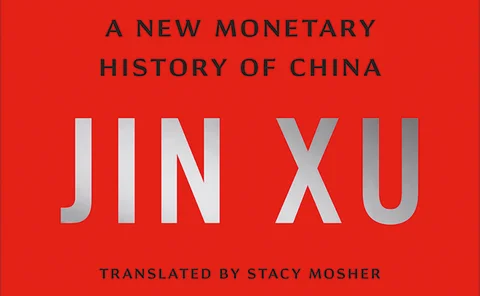Central Banking Journal
How Afghanistan’s central bank can help prevent famine
Rules could be devised to allow the New York Fed to ease the acute US dollar banknotes shortage, writes Warren Coats
Pierre Wunsch on inflation, forward guidance and policy tightening
The National Bank of Belgium governor speaks about over-reliance on central bank models and forward guidance, the impact of energy costs and inflation expectations, and the need to unwind unconventional monetary policies
Effective market operations in a modern central bank
Oliver Wyman’s Paul Fisher and Oliver Wünsch explain how central banks can successfully organise and manage their market operations departments with a public sector workforce, and when their objectives are not dictated by financial returns.
Material world: the enduring appeal of paper banknotes
Central banks have used space-age polymers to make banknotes for decades. So why does paper remain predominant in banknote production?
Book notes: The cost of free money, by Paola Subacchi
A book worth reading, as it facilitates further discussion on substantial issues, but doesn’t fully address some of the problems it takes aim at
Masaaki Shirakawa on lessons from crisis and how to reform central banks
The former governor reflects on a turbulent 40 years at the Bank of Japan, and considers how central banks might face up to the challenges of the future
Book notes: Shades of sovereignty, by Paul Wilson
An essential and stimulating read for central bankers thinking about the monetary history of their state in relation to its historical perspective and broad international trends
Tackling surging inflation
Central banks around the world are grappling with rapid price rises, with some taking very different routes to one another
Book notes: Empire of silver, by Jin Xu
A useful introduction to China’s monetary history, focusing on the last 1,000 years, but not the easiest of reads throughout
How Turkey’s president created chaos in economic policy-making
Observers allege presidential domination of the central bank, unauthorised FX transactions and untrustworthy statistics
Book notes: Monetary policy in times of crisis, by Massimo Rostagno et al
A mass of intellectual effort gives rare insights into the ECB’s inner working, but fails to fully address questions about who really controls inflation
Protecting international standard-setting despite the resurgence of politics
Andreas Dombret, global senior adviser, and Oliver Wünsch, partner, at Oliver Wyman, describe the importance of international standard-setting amid increasing political interference.
Final frontier? Japan after the Kuroda experiment
The Bank of Japan has pushed monetary easing close to its limit, yet inflation is barely above zero. What happens now?
Digitisation: transforming the role of central banks
With the rapid pace of technological change in global financial markets, central banks are increasingly recognising that many legacy tools, methods and manual processes are inadequate, writes Sachin Somani
ESG for central banking focus report 2021
The report flags challenges for central banks themselves – as guardians of the financial system, they have a duty to lead by example. But the lack of liquidity within ESG-compliant assets is proving a problem for many
Should ESG reporting be made mandatory?
As concern around the impact of climate change on businesses grows, many regulators have announced their intentions to include ESG requirements in reporting frameworks
How to #GreentheCBs
Invesco‘s Claudia Castro and Wim Vandenhoeck explore how central banks can strike a balance between innovation and disruption with their sustainability agendas.
Reforming FX reserve and macroeconomic management for ESG
Arnab Das, global market strategist, Europe, the Middle East and Africa, at Invesco explores why central banks must play a role in ESG risk mitigation, management and prevention, as they are expected to during wars, pandemics and other major shocks.
Finding room for ESG
Central Banking speaks to four policy-makers for their thoughts on ESG principles, their respective institutions’ approaches, potential restrictions and an update on integration.
A future-proof RTGS blueprint
Operating hours, access and data standards should all be considered by central banks contemplating an RTGS overhaul
BCB independence and Brazil’s inflation battle
Formal autonomy should help shield central bank from political pressure linked to 2022 elections, but challenges remain
ESG reserves adoption challenged by reliance on sovereign bonds
Higher issuance of government-compliant bonds is insufficient to offer investable alternatives to central banks.
Approaching green central bank balance sheets
Climate-friendly balance sheets come at a ‘greenium’, panellists argue at a roundtable at Central Banking’s Summer Meetings, in collaboration with Invesco.























